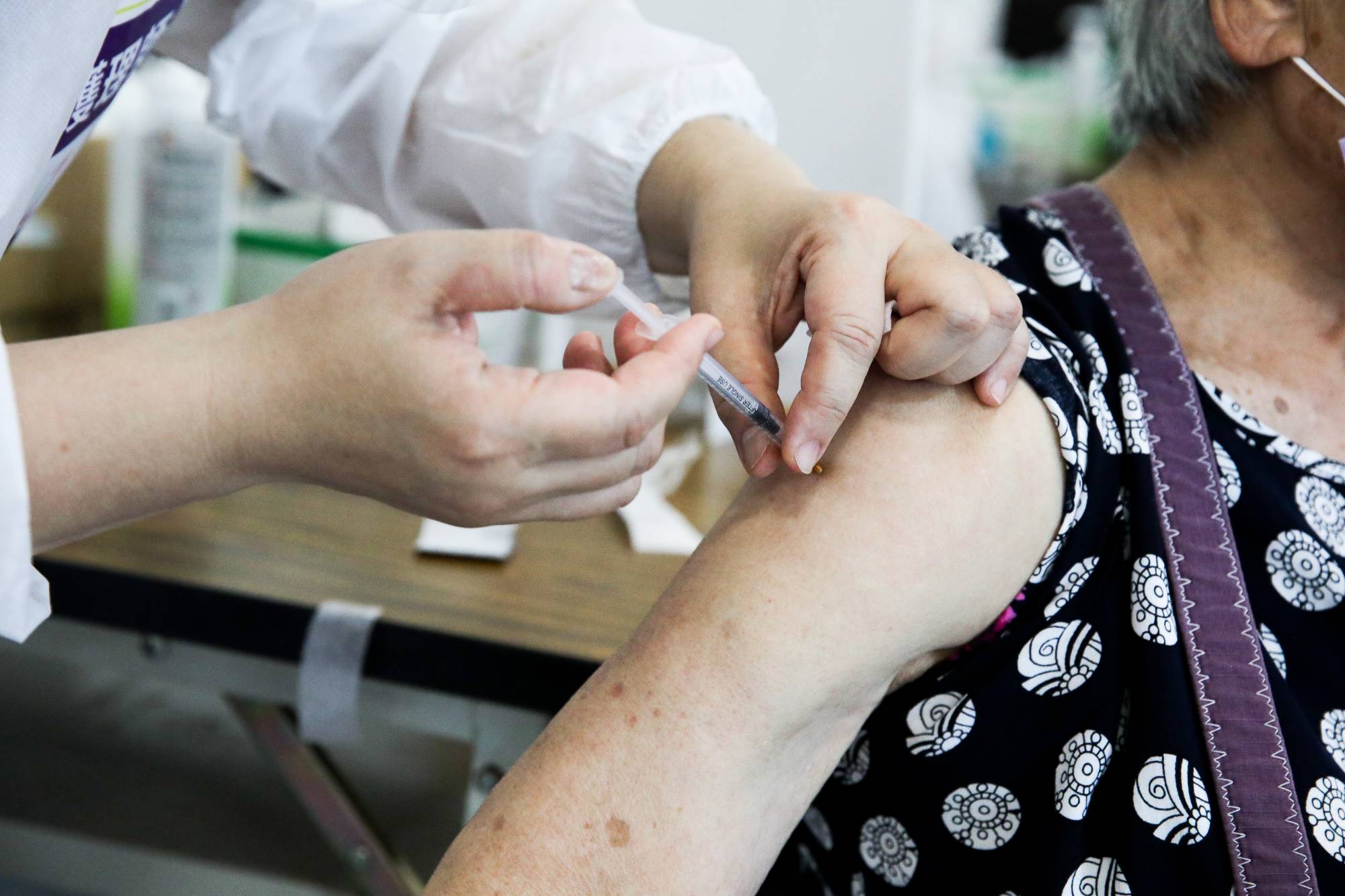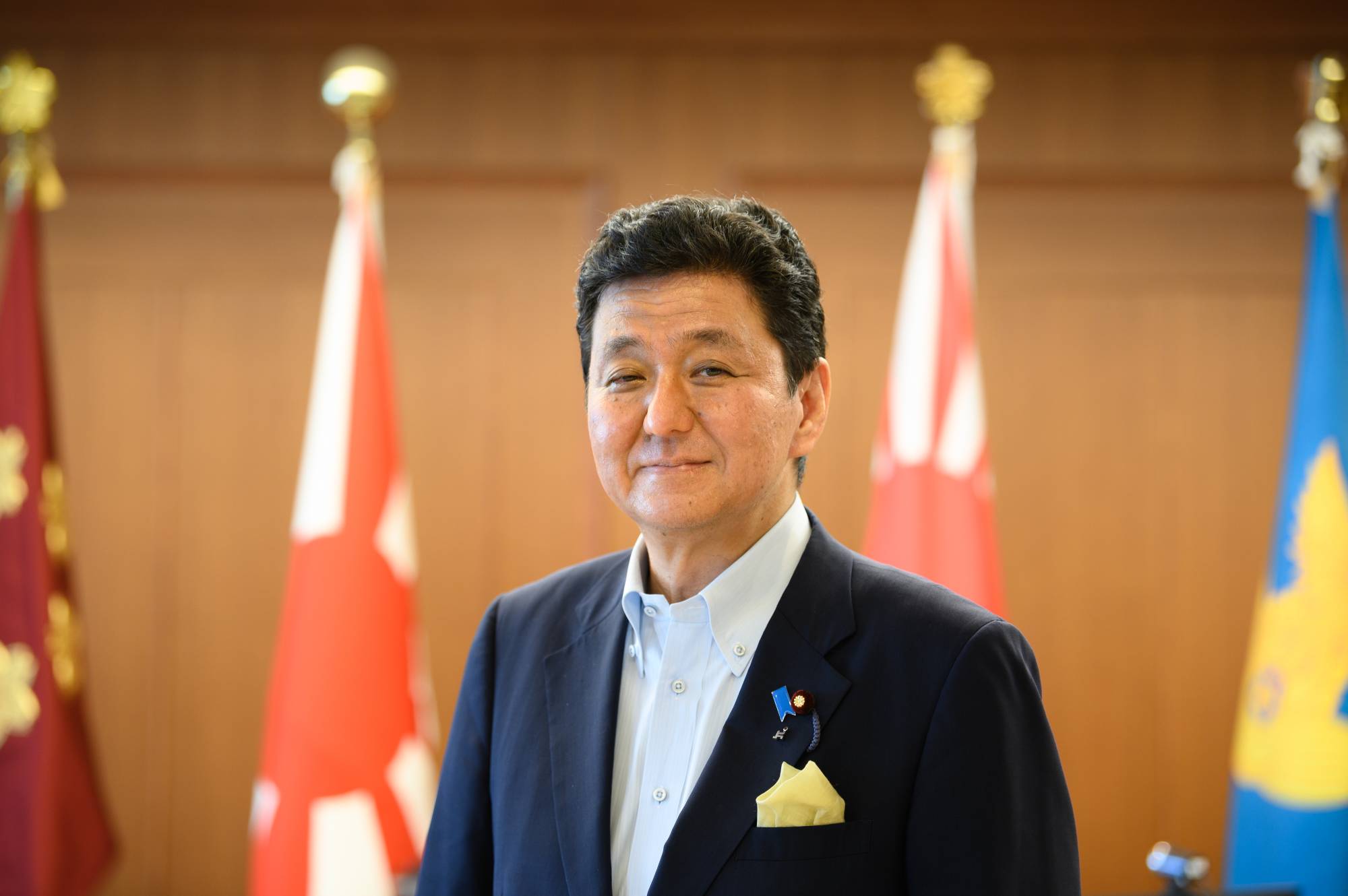A top Defense Ministry official has suggested that Japan, the U.S. and other countries re-examine their decisions to follow the “One China” policy that recognizes Beijing instead of Taipei, while also calling on democracies to stand up to growing mainland pressure on Taiwan.
Speaking during an online event hosted by the Hudson Institute think tank early Tuesday, State Minister of Defense Yasuhide Nakayama questioned whether the decisions made in the 1970s would be able to stand the test of time.
“Was it right?” he asked, noting that future generations would judge policymakers on the issue. “I don’t know.”
Asked about the evolution of Japan’s relations with Taiwan, Nakayama noted the nations’ improving ties, which have blossomed — increasingly in public view — amid concerns about Chinese machinations over the island.
“Japan and Taiwan are really close,” Nakayama said. “We are not friends of Taiwan, we are brothers.”
In line with the 1972 Japan-China Communique, through which Tokyo switched diplomatic recognition from Taipei to Beijing, Japan has maintained its own version of the One China policy.
Japan, however, has bolstered its nongovernmental ties with Taiwan in recent months — including through the donation and pledged donation of 2.24 million doses of COVID-19 vaccines — in the face of China’s assertiveness in the region, especially its military actions near the island.

Earlier this month, China’s military sent an unprecedented 28 warplanes, including heavy bombers, into Taiwan’s air defense identification zone, just days after Group of Seven nations mentioned the island in a joint statement for the first time ever, urging “the peaceful resolution of cross-Strait issues.”
Beijing views Taiwan as an inherent part of its territory and sees it as a renegade province that must be brought back into the fold — by force if necessary. In recent months, Chinese warplanes and vessels have routinely conducted operations in the vicinity of Taiwan, stoking fears of possible practice for an invasion.
Nakayama noted Japan’s geographic proximity to Taiwan, saying that if a contingency occurred over the island, it would assuredly impact Okinawa Prefecture, home to the bulk of U.S. forces in the country.
The senior defense official, who in the past called the island’s safety a “red line,” said it was time for all parties concerned to “wake up” and “protect Taiwan as a democratic country.”
Asked about Nakayama’s remarks later Tuesday, a spokesman for China’s Foreign Ministry slammed him for publicly referring to Taiwan as a country and said Beijing had protested to Tokyo over the “erroneous remarks.”
“The politician in question flagrantly refers to Taiwan as a ‘country’ on multiple occasions, severely violating principles set out in the four political documents including the Sino-Japanese Joint Statement and its solemn and repeated commitment of not seeing Taiwan as a country,” Foreign Ministry spokesman Wang Wenbin said. “We ask Japan to make crystal clarification, and ensure that such things won’t happen again.”
Nakayama, who served as state minister for foreign affairs from 2014 to 2015, also praised U.S. President Joe Biden’s hard-line stance toward China in the face of what he said were increasing threats by Beijing.
He pointed to China’s development of its JL-3 long-range submarine-launched missile, as well as more frequent missions by its navy and air force east of Taiwan.
“It’s already possible for them to aim at the East Coast and the White House,” Nakayama said.
The U.S., he said, needs to get “stronger, stronger and stronger,” as China, under President Xi Jinping’s leadership, continues to make strides in its military advancements.
Japan has also faced calls, both from the ruling Liberal Democratic Party and its ally in Washington, to boost defense spending to counter China.
The calls appear to have prompted Nakayama’s boss, Defense Minister Nobuo Kishi, to hint that Tokyo would increase spending beyond its traditional cap of 1% of gross domestic product.
“Our defense spending should be based on what equipment and personnel the country needs for its defense, as well as the national security situation,” he said in an interview with Bloomberg news last week. “I don’t think it’s appropriate to link it automatically to GDP.”
On Tuesday, Nakayama reiterated this stance, saying that Japan needed to spend more on weapons, including missiles, while also slashing costs, given that that 50% of its budget went to personnel.
Still, doing so would be a challenge, Nakayama suggested.
“Our budget is really limited,” he said.
In a time of both misinformation and too much information, quality journalism is more crucial than ever.
By subscribing, you can help us get the story right.
SUBSCRIBE NOW



